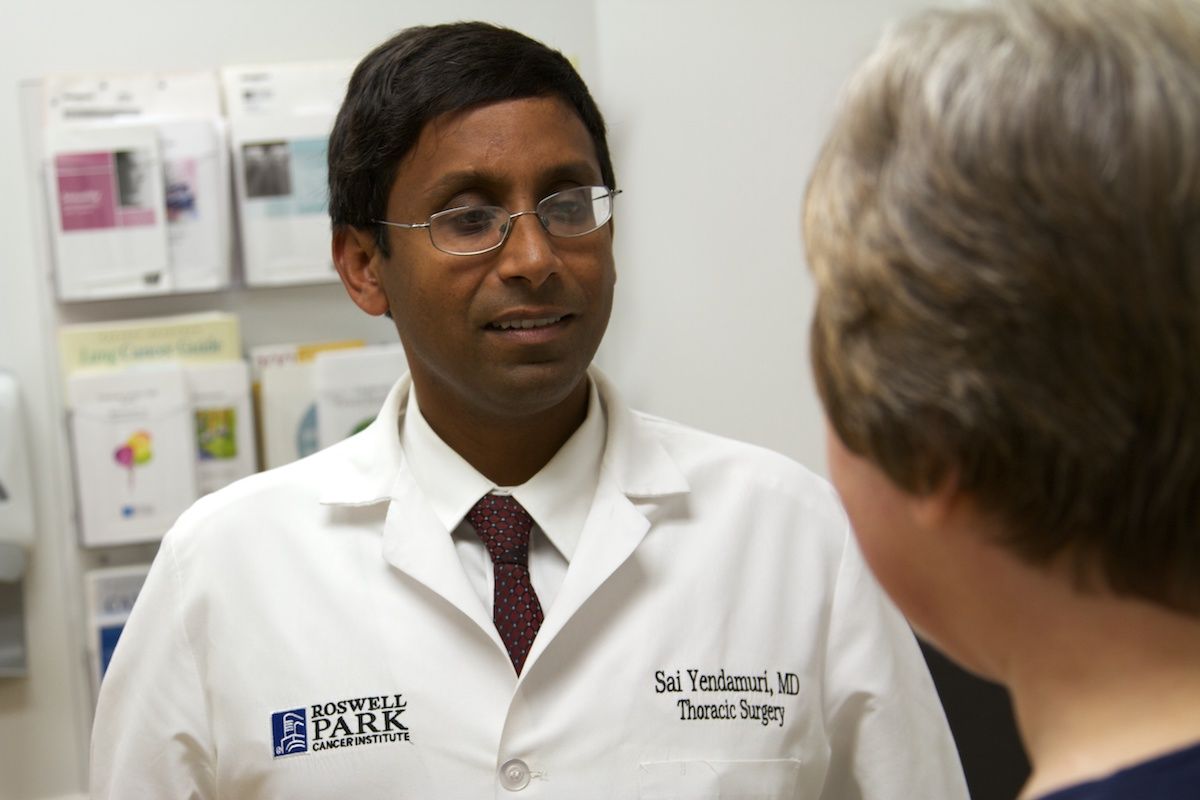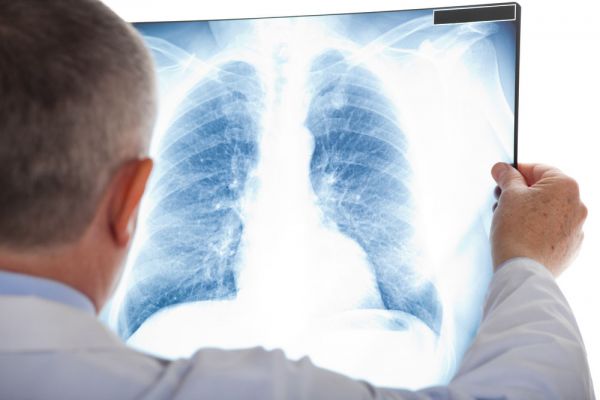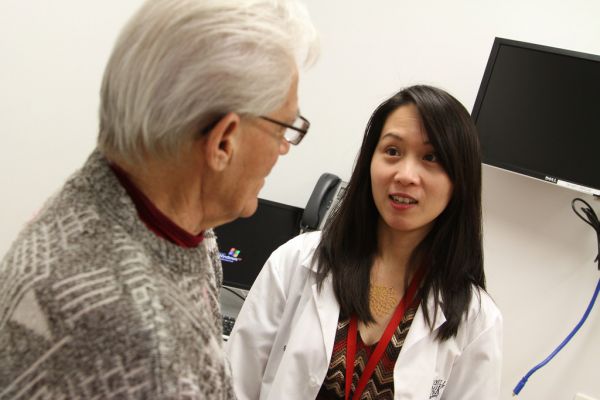What does lung cancer feel like? Sometimes it doesn’t feel like anything at all.
Because lung cancer doesn’t typically cause pain or other warning signs in its early stages, many people don’t realize they have the disease.
“Lung cancer is usually asymptomatic,” says Sai Yendamuri, MD, Chair of Thoracic Surgery and Director of the Thoracic Surgery Research Laboratory at Roswell Park Comprehensive Cancer Center. “By the time it causes symptoms, it is usually at least locally advanced.”
How do I know if I have lung cancer?
You probably won't unless you have a scan of your lungs. Small lung nodules or masses typically don’t cause pain as there are no nerve endings in the lung itself. Lung cancer symptoms depend on the location of the tumor and the rate of spread, or metastasis, so there is no fixed time when they would be expected to appear. If symptoms do occur in the early stages of lung cancer, they can include:
- a noticeable, continuing cough
- worsening — or return — of bronchitis
- hemoptysis, which is coughing up blood or blood-stained mucus
- weight loss
While the coughing and bronchitis can cause discomfort, there are other, more painful symptoms — bone aches and headaches — that appear once the disease has grown. These symptoms occur when the cancer has spread, or metastasized, to secondary sites within the body at a distance from the lungs and only cause pain when they involve a structure around them, for example, a growth in the ribs.
“If it has advanced in the chest, there may be chest or back pain, shortness of breath or coughing,” says Lori Pearce, Physician Assistant in the Department of Internal Medicine who does screenings for those at high risk for lung cancer at Roswell Park’s Care Network location at Niagara Falls Memorial Medical Center. “If it has spread to the brain, it can cause seizures, headache or stroke-like symptoms. If it has metastasized to the bone, there may be pain in the back or hip. You could also have unexplained weight loss, fatigue or weakness.”
While treatments for lung cancer vary widely, all can help reduce some pain for the patient. Every case is different, so the recommendations are always unique to each patient. Systemic treatments like chemotherapy, targeted therapies and immunotherapy can help alleviate pain as the treatment shrinks the cancer. So can palliative radiation therapy when it is applied to certain locations for pain control.
And medications like opiates — including morphine, oxycodone and methadone — nerve-pain medications such as gabapentin or Lyrica, and medical cannabis also can relieve pain. Physical therapy, acupuncture, reiki and massage also are some of the additional therapies that may be helpful, depending on the cause and location of the pain.
Early detection of lung cancer is key
Because symptoms of lung cancer typically do not appear until it has advanced outside of the lungs, individuals must be asymptomatic, meaning they have no symptoms, to qualify for lung cancer screening.
Roswell Park’s lung cancer screening program is designed to detect lung cancer early — when it is most curable — by screening and monitoring the people most likely to develop the disease, especially smokers. The program involves:
- Taking a focused medical history
- A physical examination
- A low-dose CT scan of the chest
The program diagnoses 70% of cancers at an early stage (stage 0, I and II), compared to current national trends that detect 70% of cancers at advanced stages (stage III or IV).
Please call us at 1-800-ROSWELL (1-800-767-9355) to learn whether you should be screened. An information specialist will ask you a few questions about your health and smoking history. Primary care physicians can also refer patients to Roswell Park for risk assessment and screening. We recommend you have a lung-cancer screening if you have a history of cancer of the lung, esophagus, head or neck, or if you:
- are aged 50 to 79
- smoking history of 20 pack/years (such as a pack a day for 20 years or two packs a day for 10 years)
- Smoked within the last 15 years (even if you’ve quit)




